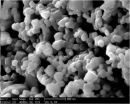(Press-News.org) TORONTO, ON, Oct. 28, 2014 — People living in rural areas are at no greater risk of dying from heart disease than their urban counterparts, according to a new study by researchers at Women's College Hospital and the Institute for Clinical Evaluative Sciences (ICES).
The study, the first to examine outpatient quality of care between urban and rural communities, counters existing research, which suggested gaps in care for those living in rural areas.
"Research has long suggested people with heart disease in rural areas are at a disadvantage when it comes to access to health care and longevity," says Dr. Sacha Bhatia, lead author of the study and a cardiologist at Women's College Hospital. "Our study shows once a patient leaves the hospital their overall health outcomes are similar regardless of where they live."
The study, published today in Circulation: Cardiovascular Quality and Outcomes, examined the records of more than 38,000 people with chronic ischemic heart disease living in either urban or rural areas. They found, in comparison to their urban counterparts, those in rural areas:
Had fewer specialist visits
Visited hospital emergency departments more frequently for care
Were prescribed statins less often
Were tested less frequently for cholesterol and blood sugar levels
Experienced a similar risk of hospitalization and death
The researchers say while those living in rural areas access their care differently, it did not result in poor health outcomes.
"From our study, we know that people with heart disease in rural areas tend to rely heavily on emergency departments for their care because of a lack of outpatient access to family doctors and specialists," said Dr. Bhatia, also a scientist at ICES. "Yet, despite an increase in emergency department admissions in rural areas, we didn't see worse health outcomes for these individuals."
INFORMATION: END
Where you live doesn't matter if you have heart disease, study finds
Death and hospitalization rates similar for people with heart disease living in rural or urban areas
2014-10-29
ELSE PRESS RELEASES FROM THIS DATE:
Genome sequenced of enterovirus D68 circulating in St. Louis
2014-10-29
Researchers at Washington University School of Medicine in St. Louis have sequenced the genome of enterovirus D68 sampled from patients treated at St. Louis Children's Hospital. Nationwide, the virus has spread rapidly in recent months and caused severe respiratory illness in young children, with some patients requiring hospitalization.
"Having the DNA sequence of this virus enables additional research," said senior author Gregory A. Storch, MD, the Ruth L. Siteman Professor of Pediatrics. "It can be used to create better diagnostic tests. It also may help us understand ...
CU Denver study says upgrading infrastructure could reduce flood damage
2014-10-29
DENVER (Oct. 29, 2014) – The severe flooding that devastated a wide swath of Colorado last year might have been less destructive if the bridges, roads and other infrastructure had been upgraded or modernized, according to a new study from the University of Colorado Denver.
"People need to understand the importance and seriousness of infrastructure," said Jimmy Kim, PhD, associate professor of structural engineering at the CU Denver College of Engineering and Applied Science and lead author the study. "There is an assumption that a bridge will stand forever and that's ...
Blood test developed to diagnose early onset Alzheimer's disease
2014-10-29
The research team previously identified that changes in the brain occur two decades before patients show signs of dementia. These changes can be detected through expensive brain imaging procedures.
The new early detection blood-test could predict these changes and a person's risk of developing AD much earlier than is currently possible.
The blood test has the potential to improve prediction for AD to 91 per cent accuracy. However, this needs to be further tested in a larger population across three to five years, due to AD being a progressive disease.
In an initial ...
New solar power material converts 90 percent of captured light into heat
2014-10-29
A multidisciplinary engineering team at the University of California, San Diego developed a new nanoparticle-based material for concentrating solar power plants designed to absorb and convert to heat more than 90 percent of the sunlight it captures. The new material can also withstand temperatures greater than 700 degrees Celsius and survive many years outdoors in spite of exposure to air and humidity. Their work, funded by the U.S. Department of Energy's SunShot program, was published recently in two separate articles in the journal Nano Energy.
By contrast, current ...
Why some butterflies sound like ants
2014-10-29
Washington D.C, October 29, 2014 -- Ant nests can offer a lot to organisms other than just ants. They are well-protected, environmentally-stable and resource-rich spaces -- in many ways everything a tiny creature could ask for in a home. So long as you can live with an army of ants of course.
For the thousands of species of insects that squat inside ant nests, survival means finding ways to live with the ants -- by foiling the chemical cues ants use to distinguish friend from foe, for instance. Now a team of scientists from the University of Turin in Italy have been ...
New scientific review reveals emerging and established health benefits of whole grain oats
2014-10-29
CHICAGO, IL, OCTOBER, 29, 2014 – According to a new, wide-reaching collection of scientific reviews published in the October 2014 supplement issue of the British Journal of Nutrition, oats may play an important role in improving satiety, diet quality and digestive, cardiovascular and general metabolic health. In the supplement issue, entitled "Oats, More Than Just a Whole Grain," scientists from around the world explore the oat from agriculture and sustainability to nutrition policy and opportunity and new insights in nutritional science that go beyond cardiovascular ...
Black Republicans put most faith in US government
2014-10-29
Black Republicans trust the United States government more than other political groups, finds a new study from the University of British Columbia, ahead of the mid-term U.S. elections to be held on November 4.
Using election data from 1958 – 2012, the study measures the role race plays in determining levels of government trust for black and white Americans. While both groups show similar levels of political trust, when party lines are factored in, black Republicans are revealed to be the most faithful.
"Being both black and Republican is seen by some as going against ...
Women who took part in VOICE speak up about why they didn't use HIV prevention products
2014-10-29
CAPE TOWN, October 29, 2014 – Many of the women at first acted surprised. Some insisted the blood tests were wrong. But most conveyed to researchers why they had not used the study products assigned to them as participants in VOICE, a large HIV prevention trial that, as a likely consequence, did not find any of the three products that were tested to be effective.
The women were among 127 former VOICE participants who, as part of a behavioral sub-study called VOICE D, agreed to take part in in-depth interviews and/or focus group discussions after learning the results ...
Kidney cancer in Central Europe
2014-10-29
New research by the international Cancer Genomics of the Kidney consortium (CAGEKID) reveals an important connection between kidney cancer and exposure to aristolochic acid, an ingredient in some herbal remedies. The findings, published in Nature Communications, have important implications for public health.
Kidney cancer kills more than 140,000 people every year, and in Central Europe incidence rates have been increasing dramatically. CAGEKID, part of the International Cancer Genome Consortium (ICGC), has been studying the genetic causes of this disease in Europe. The ...
Study sheds light on genetic architecture of kidney cancer
2014-10-29
A new study on a large cohort of kidney cancer patients in Europe sheds light on the genetic architecture of the disease -- and reveals an apparent link between exposure to aristolochic acid and incidence of kidney cancer, particularly in Romania.
The research, by an international team led by scientists from the McGill University and Genome Quebec Innovation Centre in Montreal, underscores the importance of investigating possible sources of exposure to aristolochic acid. The compound, found in plants of the Aristolochia genus, also has been suspected of causing a kidney ...
LAST 30 PRESS RELEASES:
Political polarization can spur CO2 emissions, stymie climate action
Researchers develop new strategy for improving inverted perovskite solar cells
Yes! The role of YAP and CTGF as potential therapeutic targets for preventing severe liver disease
Pancreatic cancer may begin hiding from the immune system earlier than we thought
Robotic wing inspired by nature delivers leap in underwater stability
A clinical reveals that aniridia causes a progressive loss of corneal sensitivity
Fossil amber reveals the secret lives of Cretaceous ants
Predicting extreme rainfall through novel spatial modeling
The Lancet: First-ever in-utero stem cell therapy for fetal spina bifida repair is safe, study finds
Nanoplastics can interact with Salmonella to affect food safety, study shows
Eric Moore, M.D., elected to Mayo Clinic Board of Trustees
NYU named “research powerhouse” in new analysis
New polymer materials may offer breakthrough solution for hard-to-remove PFAS in water
Biochar can either curb or boost greenhouse gas emissions depending on soil conditions, new study finds
Nanobiochar emerges as a next generation solution for cleaner water, healthier soils, and resilient ecosystems
Study finds more parents saying ‘No’ to vitamin K, putting babies’ brains at risk
Scientists develop new gut health measure that tracks disease
Rice gene discovery could cut fertiliser use while protecting yields
Jumping ‘DNA parasites’ linked to early stages of tumour formation
Ultra-sensitive CAR T cells provide potential strategy to treat solid tumors
Early Neanderthal-Human interbreeding was strongly sex biased
North American bird declines are widespread and accelerating in agricultural hotspots
Researchers recommend strategies for improved genetic privacy legislation
How birds achieve sweet success
More sensitive cell therapy may be a HIT against solid cancers
Scientists map how aging reshapes cells across the entire mammalian body
Hotspots of accelerated bird decline linked to agricultural activity
How ancient attraction shaped the human genome
NJIT faculty named Senior Members of the National Academy of Inventors
App aids substance use recovery in vulnerable populations
[Press-News.org] Where you live doesn't matter if you have heart disease, study findsDeath and hospitalization rates similar for people with heart disease living in rural or urban areas


